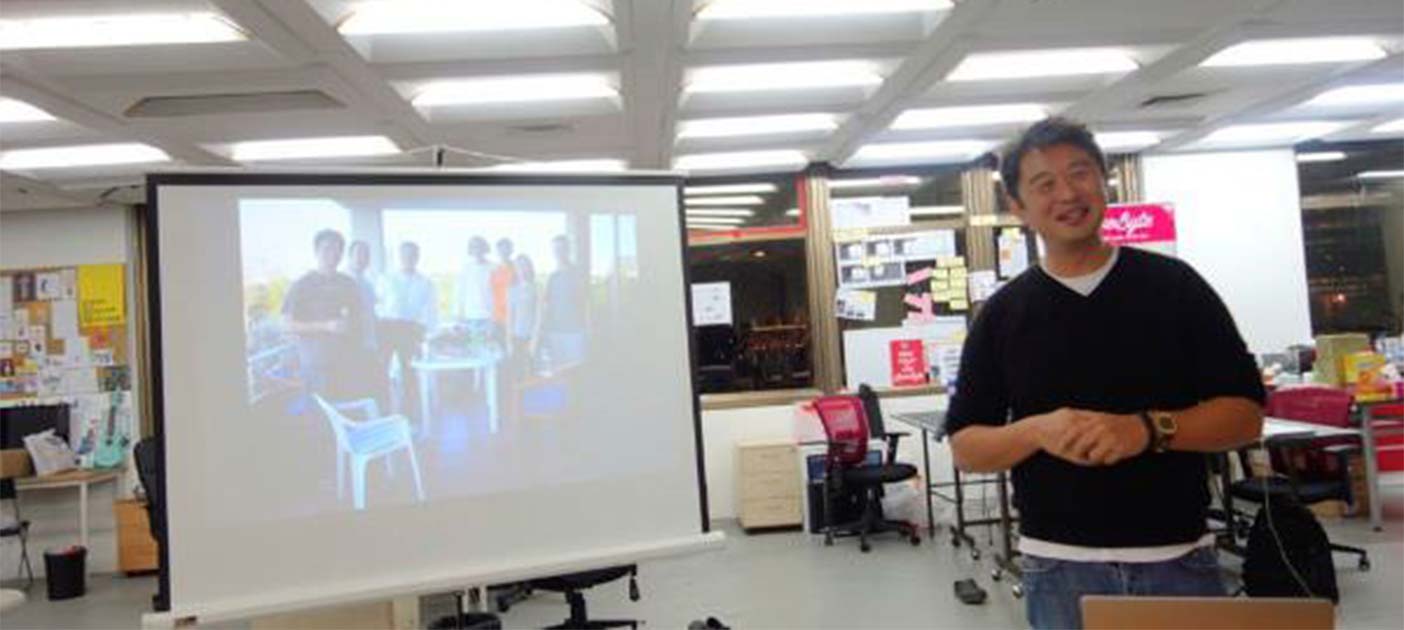Hugs, Kisses and Emerging Markets
Steven Goh, Founder and CEO, MigMe, walks us through his company's long and dynamic past - and demonstrates how repeated setbacks can often pave the way to eventual success.

Author: DBS BusinessClass, Administrator of DBS
MigMe's Steven Goh believes that an IPO is merely a step in the journey of a startup's life cycle - putting a company in a good position to seize new opportunities - rather than the final destination. Not surprising for a man who has navigated the ebb and flow of the tech industry for almost two decades and intends to keep sailing.
That's not an unlikely scenario given that his Singapore-based online chat and game platform, founded all of eleven years ago, recently debuted on the Australian Securities Exchange (ASX) in August 2014 through a reverse IPO. Freshly rebranded as MigMe, the former Mig33 now boasts a valuation of more than $100 million and a sprawling user base of over 70 million people from countries as wide-ranging as Indonesia, Nepal, Syria and the Maldives.
In 2006, Steven Goh launched Mig33 in Western Australia in anticipation of the next big wave which at that time was mobile communications technology. Their flagship product, ‘X-txt', a mobile chat platform promising free messaging (easily a forerunner of Whatsapp) failed to catch on. This, along with other setbacks, prompted Goh to seek out opportunities a year later in the heart of the tech world - Silicon Valley.
Nestled in the Valley, half a world away, Mig33 fared well initially, garnering the favour of such renowned VCs as Accel Partners, Redpoint Ventures and later DCM. However, in a strange twist of fate Mig33's first markets were Sudan, Bangladesh and the Maldives - and ironically from then on grew everywhere in the world other than North America.
In late 2009, in order to reduce the cost of travelling, Goh withdrew Mig33 from the Valley and moved to a location much better suited to service its markets - Singapore. Here, Goh realised one important fact: Within an 8 hour flying distance, you can reach the capitals of more than half the world's population. In short, there are more people living inside of Asia than outside of it. From this region, Goh was able to build a team that lived and breathed the surrounding emerging markets and take his platform to the next level.
It was also around this time that Goh also sensed an opportunity in microblogging and expanded Mig33 to include a microblogging format. It wasn't long before sales skyrocketed, going from $80,000 to $480,000 in just 8 months and Mig33 ranked as the world's 7th fastest growing social platform.
Now rebranded as MigMe, the company has been garnering record achievements nearly every month since the beginning of 2014. Milestones include the purchase of a 19.9% stake in
MigMe by FIH Mobile, a handset manufacturer with links to Foxconn; the acquisition of Alivenotdead, a Hong Kong-based artist community website; an artist agreement with Universal Music in Indonesia, one of MigMe's key markets.
Goh talks about what he calls ‘Alignment', where he describes four points you need to have in a successful startup. Opportunity - Size and nature of the prize. Capability - Competitive strategy and advantage. Team - Execution, Speed and Scale. Capital - Pathway to a Capital Outcome. Although, with regards to the last point, he is quick to caution any wide-eyed hopefuls that getting investor or VC funding is ‘a lot more complex than the blogs would have you believe.'
‘People fall into the myopic view of thinking that raising money is like trying to pass an exam,' Goh quips, adding optimistically that ‘It's a very big world. There will be an investor somewhere who will back what you're doing.'
Today, MigMe stands as a social entertainment platform that features group chat, social gaming and blogging functions as well as virtual gifting. According to Goh, ‘being a platform company is great because what you add at the top can result in amazing repercussions below,' and extolls the synergistic effects of MigMe's platform.
MigMe works via a ‘Freemium' business model (where products are provided free of charge to basic level users, but are paid for by subscription at higher levels) and focuses on monetization through the sale of virtual gifts and games.
Or, as Goh often says, ‘It's all about selling hug and kisses to emerging markets.'
Was this information useful?
Thanks for your feedback
Subscribe to DBS BusinessClass
Stay updated with the latest market trends and industry insights, connect with a network of entrepreneurs, and gain access to exclusive event invitations. Join Asia's fastest growing business community – get your complimentary membership here.





That's great to hear. Anything you'd like to add?
We're sorry to hear that. How can we do better?